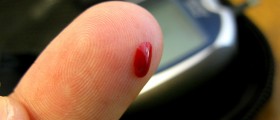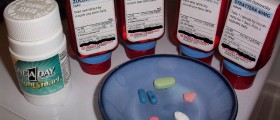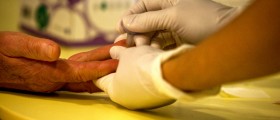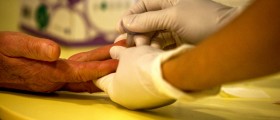
Biguanide metformin,sulfonurea drugs (including glibenclamice and Gliclazide) andthiazolidinediones (glitazones) and meglitinides are the most commonly used medicationsfor the treatment of diabetes mellitus type 2. This type of diabetes is alsoknown as no-insulin-dependent or adult-onset diabetes, and it can be caused bymoderate lack of insulin or insulin resistance. The first course of action inthese patients is the change in diet and lifestyle. If these actions don’t decreasethe blood sugar to normal, doctors usually prescribe drugs to treat it.
Untreated diabetestype 2 can damage your heart, causing the heart attack, but also kidneyproblems, stroke, and amputation.
Glyburide(or glibenclamide) is one of the medications used in diabetes type 2 treatment.It works by increasing the level of intracellular calcium in the pancreas cells,which stimulate the release of insulin. This medication won’t be efficient if used totreat diabetes type 1 and it won’t give any results in that case.
Severity ofa patient’s condition dictates the dosage of glyburide. Patients suffering fromkidney or liver problems usually start with 1.25mg of glyburide per day, whileother patients may be prescribed with anything from 2.5 to 5mg of the drug.
AdverseEffects
Side effectsare rare, when using glyburide, and those include hypoglycemia (low bloodsugar) and cholestatic jaundice in some cases. According to some recentstudies, the combination of glyburide and metformin might not be safe to use totreat type 2 diabetes mellitus. Researchers find out that this combination ofdrugs might have higher risk of mortality than other anti-diabetic medications.
Warning
Glyburide isnot recommended to be used in pregnant women. Although many drugs used by amother do not reach the unborn child, that’s not the case with glyburide. Studiesperformed on animals (pregnant rats) showed that both mother and the fetus havethe same concentration of this medication in their blood.
It happensbecause glyburide can reach the uterus, then enter the placenta and reach thebaby. As in most cases, drugs are not good for the fetus, and fetus couldsuffer from various medical problems because of the medication in the system. Somerat babies suffered from different bone problems, after being exposed toglyburide in mother’s (and their own) blood.
After this,there were several different laboratory researches about potential damage ofglyburide to unborn animals. These tests didn’t show any medical problems inbaby animals.
As for thehumans, glyburide is not considered safe to be used and many doctors won’trecommend it to a pregnant woman. Doctors found the lack of scientific evidencesdiscouraging and do not prescribe medications that could harm the baby easily.
















Your thoughts on this
Loading...